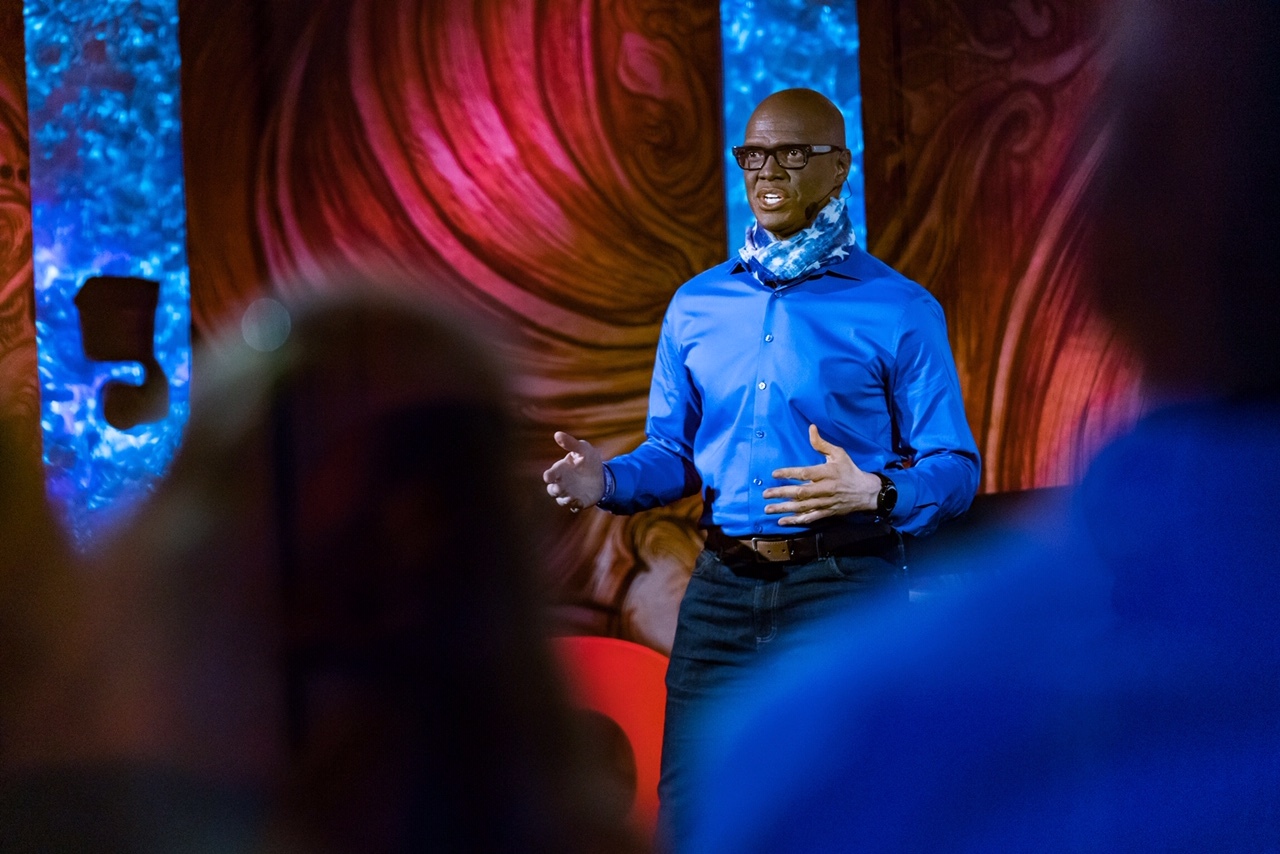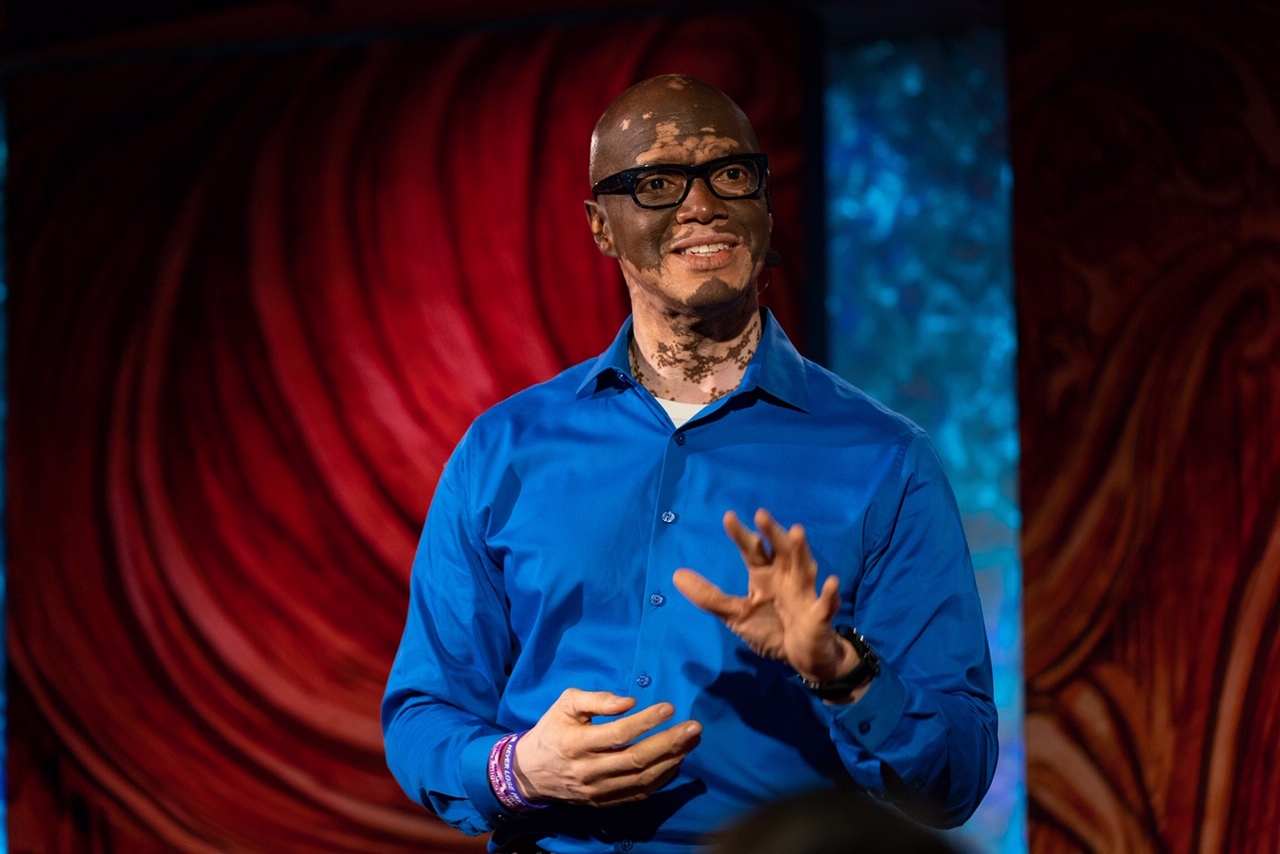New
Lee Thomas: "How I Help People Understand Vitiligo"
Feel like getting motivated or just looking for a feel-good news story? There's no better way to take a break from your day than with a fresh cup of coffee and a great TED talk from the most respectable name in vitiligo community.
Watch this incredibly moving TED talk from the vitiligo spokesperson, 4x Emmy Award winner, Fox2 TV entertainment guru, and our best friend, Lee Thomas. His extremely personal talk explores the uncomfortable feeling of vulnerability familiar to every person with vitiligo, and suggests the way out of a daily stress.
Lee shares how he discovered a way to counter misunderstanding and fear around his appearance with engagement, dialogue -- and a smile. "Positivity is something worth fighting for, and the fight is not with others -- it's internal," says Lee. "If you want to make positive changes in your life, you have to consistently be positive."
Image source: TED
TED stands for Technology, Entertainment and Design, and features "Ideas Worth Spreading."


FAQOther Questions
- Is there a traditional medicine to treat vitiligo?
Traditional remedies can be helpful for managing stress or general metabolic health, but when it comes to vitiligo, the evidence is limited. While some natural supplements provi...
- Is there a special diet for vitiligo?
Recent research highlights the potential of diet and nutrition in managing vitiligo, offering an alternative where traditional therapies may be lacking. However, the relationshi...
- Pyrostegia venusta as a folk medicine for vitiligo?
Pyrostegia venusta, also known as “flame vine” or “cipó-de-são-joão,” is a neotropical evergreen vine native to Brazil. It thrives in fields, coastal areas, forest edges, and ro...
Though it is not always easy to treat vitiligo, there is much to be gained by clearly understanding the diagnosis, the future implications, treatment options and their outcomes.
Many people deal with vitiligo while remaining in the public eye, maintaining a positive outlook, and having a successful career.
Copyright (C) Bodolóczki JúliaBy taking a little time to fill in the anonymous questionnaire, you can help researchers better understand and fight vitiligo.

